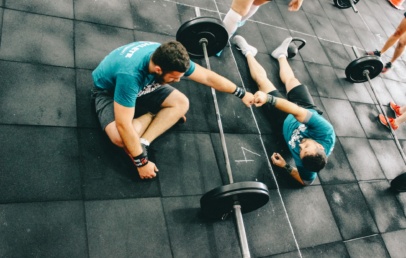
You can’t power a car with corn syrup.
Working out on a daily basis is one of the best things you can do for your body and health. However, how you begin your workout sessions will have a huge impact on how well you work out. Warming up your body for the stress your muscles will be feeling during the workout will greatly increase metabolism as well as allow your muscles to rejuvenate faster. Today, we focus on the pre-workout nutrition.
You need to provide your body with the right fuel prior to exercising to give yourself the energy and strength for better performance. It’s important to realize each macronutrient you put in your body has a specific role in your exercise regime.
Carbohydrates (carbs for short) provide glucose, which is used by your muscles as fuel. Your muscles’ main source of energy for high-intensity workouts are your glycogen stores, which is the way your body stores glucose. However, the amount of glycogen stored by your muscles is limited. If you use them all up during your workout, you will definitely feel your energy being depleted. This is one of the reasons why you will see athletes load up on carbs for several days before big games.
Protein is also an important element of your pre-workout meal or food intake. Protein provides your body with faster muscle growth and recovery, increased strength and lean mass, as well as better muscle performance. In fact, studies have shown an increased positive anabolic response after participants consumed about 20 grams of whey protein before working out.
Finally, fat. Yes, fat. While glycogen is used by your body for short and high-intensity workouts, your body uses fat as a source of fuel for longer and more moderate-intensity workouts. It may sound counter-intuitive for many looking to lose it, but if your body doesn’t have the fuel to burn, it won’t matter much anyways.
In summary, carbs will help maximize your storage of glycogen in your body for high-intensity, powerful workouts. Fat will help fuel your body for longer and less intense exercises (like running). And finally, protein will help aid in muscle recovery and growth.




